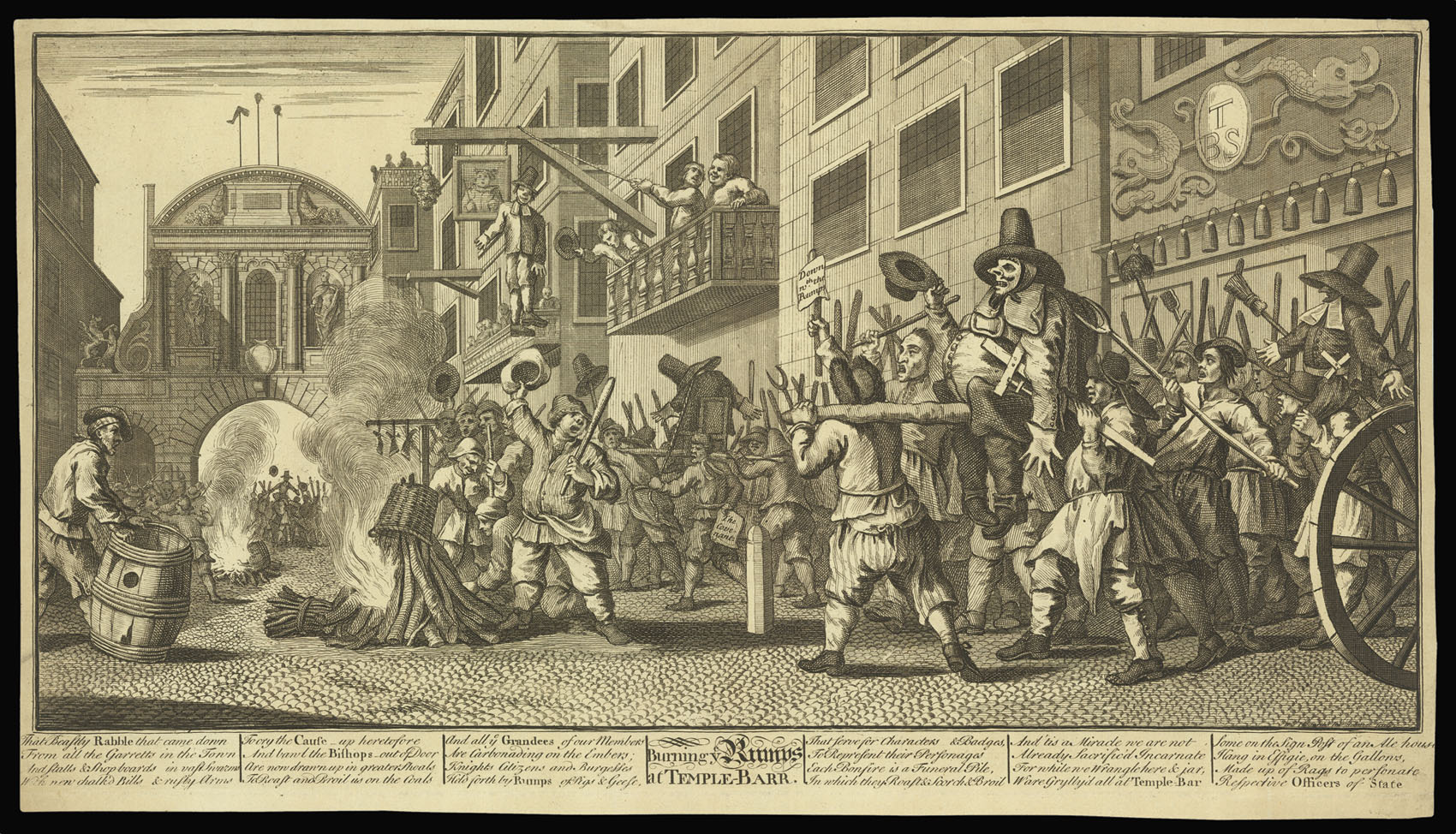
Burning ye Rumps at Temple-Barr.
- Author: HOGARTH, William
- Publication place: [London
- Publisher: John Cooper and Philip Overton
- Publication date: 1726].
- Physical description: Engraved print, trimmed to side and upper neat line.
- Dimensions: Image: 244 by 492mm (9.5 by 19.25 inches). Sheet: 280 by 500mm (11 by 19.75 inches).
- Inventory reference: 12439
Notes
From the ‘Hudibras’ series of prints by William Hogarth. Hogarth created a series of 12 prints to illustrate the epic poem ‘Hudibras’ by Samuel Butler, satirising seventeenth century Puritans during the English Civil War, of which this print is the eleventh.
The scene Hogarth depicts here was an actual historical incident, when there were protests in Temple Bar against the so-called ‘Rump’ Parliament. The Rump Parliament was first called in December 1648, in order to remove those members who were in favour of negotiation with Charles I. The ‘rump’ was the remaining members of the legitimate parliament. After Oliver Cromwell died in 1659 and his rule as Lord Protector ended, his son Richard attempted to briefly reinstate the Rump Parliament. The people of London rioted in protest, and Hogarth shows them in Butcher’s Row, just north of the Strand. The joints of meat roasting in the fires represent the Rump, as do the effigies carried by the crowd. In the background, the heads of traitors fixed on spikes are visible.
Bibliography
- BM S,2.16
- BM Satires 514
- Paulson 1989 92.II.
 Rare Maps
Rare Maps  Rare Atlases
Rare Atlases  Rare Books
Rare Books  Rare Prints
Rare Prints  Globes and Planetaria
Globes and Planetaria 










